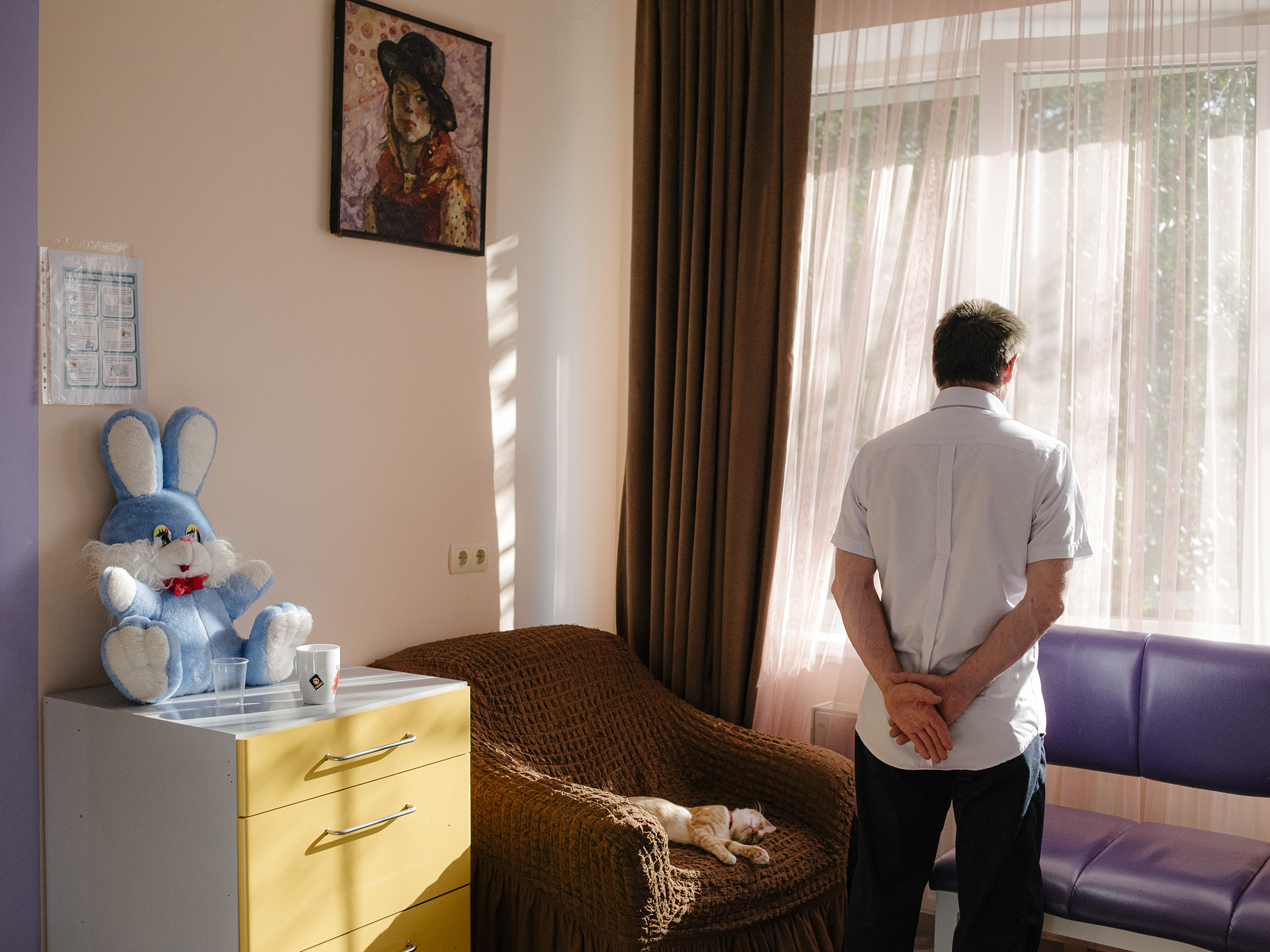
By January 2018 the mayor of Puhoi was fed up. His assistant kept turning up to work drunk. His colleague wasn’t the only one; sometimes it seemed to him as if everyone in this Moldovan village of 5,500 people had a drinking problem. So the mayor, Petru Frunze, decided to hold a competition. Any couple who could stay sober for six months would receive a cash prize of 1,000 lei ($56) and jobs. Twenty couples signed up, but only one succeeded. As promised, Frunze found them jobs as cleaners in the capital city of Chisinau, around 15 miles away. He even covered their travel costs. But within a few months, they had both relapsed and turned back to alcohol. “This life isn’t for us,” they told him. The competition never ran again. “If we had just one success story, it would have been worth it,” says Nina Iurcu, who succeeded Frunze as mayor in April 2019.
In Puhoi, alcohol is the lifeblood of the economy and the community. Almost everybody works for the local Asconi winery, and almost everyone distills their own wine. Alcohol is currency, used to pay people for small jobs and favors. “You’re not a person if you don’t drink,” says Nicolae Rusu, a 35-year-old construction worker, who says he used to make 300 liters of his own wine each year. Puhoi is no different to many other villages in this Eastern European country that borders Romania and Ukraine. The wine industry employs almost a tenth of the national workforce and income generated from viticulture forms 15% of the national annual budget. But the country is dependent on alcohol in many more ways than one.
Moldova has the highest levels of alcohol consumption in the world and the highest death rate linked to drinking. One in four deaths are related to alcohol while the world’s average is one in 20. The latest 2016 World Health Organization (WHO) data found that people over the age of 15 drink on average 15.2 liters of pure alcohol (including alcohol made at home or illegally) per capita each year, the equivalent of around 167 bottles of wine. Following closely is Lithuania with 15 liters and the Czech Republic with 14.4, while Europe’s average is 9.8. “Every family has a person with a drinking problem,” says Tudor Vasiliev, a psychiatrist specializing in addiction and a coordinator of the National Alcohol Control Program.
Accurate figures for Moldova are hard to reach because up to 70% of alcohol consumed is homemade wine, says Olga Penina, a lecturer of Public Health at Chisinau’s State University of Medicine and Pharmacy. The wine-drinking culture sets Moldova and Georgia apart from other post-Soviet countries, where people prefer to drink spirits. The “cult of wine is strong”, says Penina. “Fighting it is problematic.”
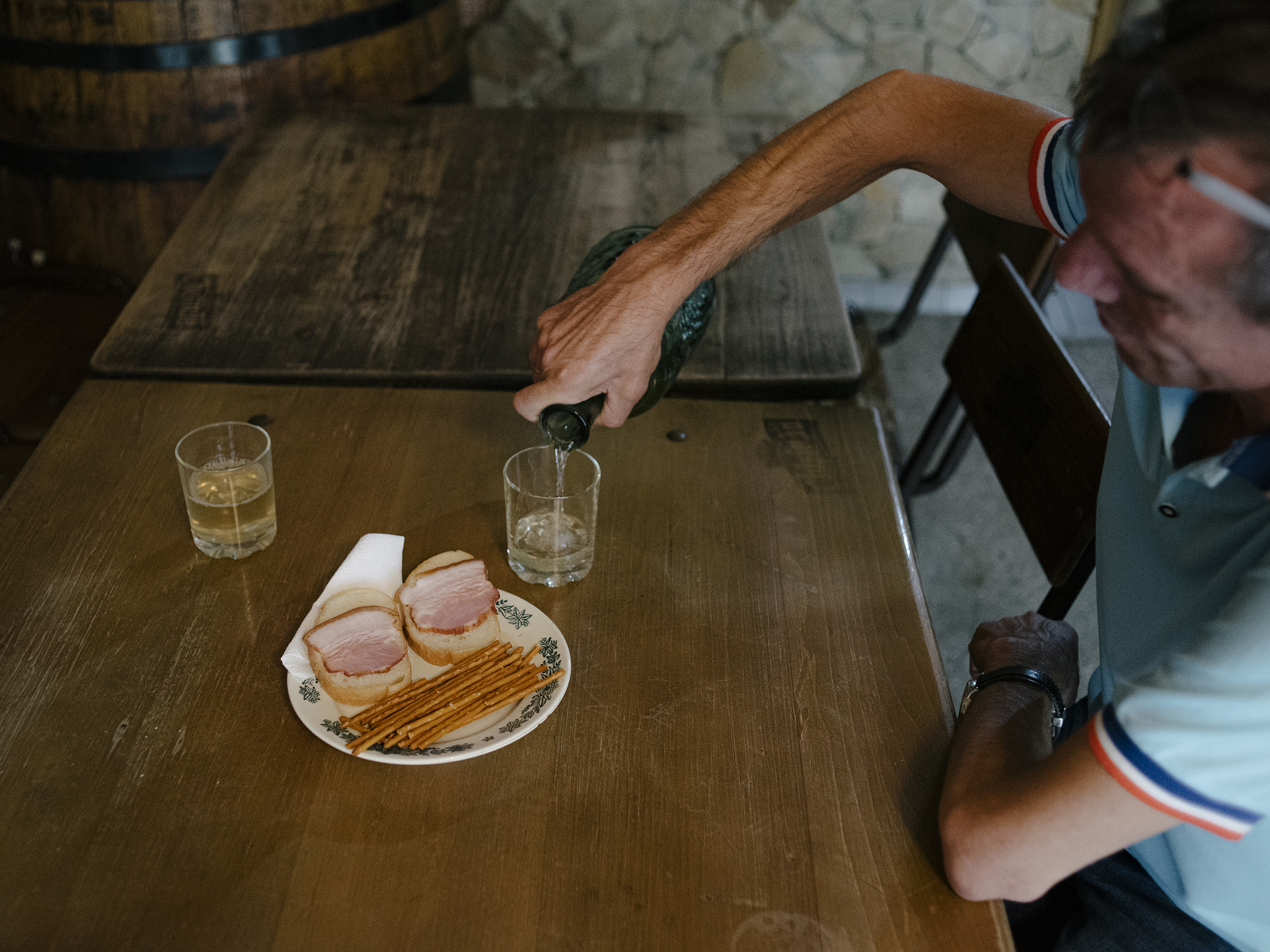
Although alcohol consumption levels have overall decreased in Europe, former Soviet countries like Moldova are still home to the world’s heaviest drinking populations. And it’s taking a devastating toll on public health. Alcohol contributes to the deaths of one in five Russians, and it’s among the main reasons for lower life expectancy in the ex-USSR compared to Western countries. In Moldova, where liver cirrhosis is more common than anywhere else in Europe, men live to an average age of 68 and women, 75. Europe’s averages are 79 and 84 respectively.
In the Soviet Union, little was done to curb excessive drinking. It was even encouraged as alcohol production was a very profitable industry for the Soviet government, according the Marya Levintova, a public health expert on Russia. Levintova and a number of other other academics including Mark Schrad said that alcohol in post-Soviet countries has been a “statecraft”. While generating revenue for the government, it has also stymied dissent and promoted autocracy. In his 2014 book Vodka Politics: Alcohol, Autocracy and the Secret History of the Russian State, Schrad wrote that “vodka became an instrument of state domination.”
This perception also exists in Moldova, Europe’s poorest country, where corruption and political instability are rife. “It’s a way of keeping the population passive,” says Ivan Lungu, a 38-year-old recovering alcoholic, who quit drinking a couple of years ago. “Drunk people don’t protest.”
Mayor Iurcu’s office in Puhoi is located in a dark and bare community center. Frayed wires poke from holes in the cracked ceiling. A warm smell of onion and garlic fills the hall. Next door, pensioners gather under a portrait of the Virgin Mary, waiting for a free bowl of soup and bread. Outside elderly men smoke around a table, watching the young construction workers balancing on a brick wall as they pass each other tools. A bus shelter down the road is plastered with adverts for jobs in other European countries. Inside the shelter hangs a painting of an idyllic house nestled in tranquil woodland.
Puhoi, like all villages in Moldova, has changed a lot since the fall of communism in 1991. It’s emptier. One million people have emigrated from the country since then, leaving behind a population of 3.5 million. Moldovans who can prove they’re of Romanian descent are eligible for a passport, and consequently access to the E.U. After Russia, Italy has the largest population of Moldovan migrants, with more than 140,000 Moldovan residents.
“At first it was one family member, then two, now whole families have left,” Iurcu sighs. “How can you stay here? It’s gone from bad to worse. There’s nothing left.” Iurcu’s own brother left for Italy, she says, where he set up his own business. Mass emigration has fueled alcohol abuse, says doctor Vasiliev, as families and communities are broken up. “Italian syndrome” is colloquially used by doctors to describe alcoholic men whose wives or girlfriends have left to work there. It’s also used to describe the mental health problems common among women who have left to work there.
Poverty and low wages are driving Moldovans away, particularly those who come from villages. About a fifth of the rural population live in poverty and the United Nations Development Program estimates that Moldovans living abroad provide over a quarter of their family’s income back at home, where the average wage is 5,700 lei ($320) a month.
Endemic corruption and a lack of job opportunities are major reasons people leave. Ranked 117 out of 180 countries in Transparency International’s 2018 Corruption Index, most of Moldova’s economy flows through the informal market. In 2014, it was revealed that $1 billion had simply vanished from three Moldovan banks, costing the country more than 10% of total GDP. It enraged Moldovans, 38% of whom are living on around $5 a day, according to the World Bank. Tens of thousands of people protested what they dubbed “the heist of the century.”
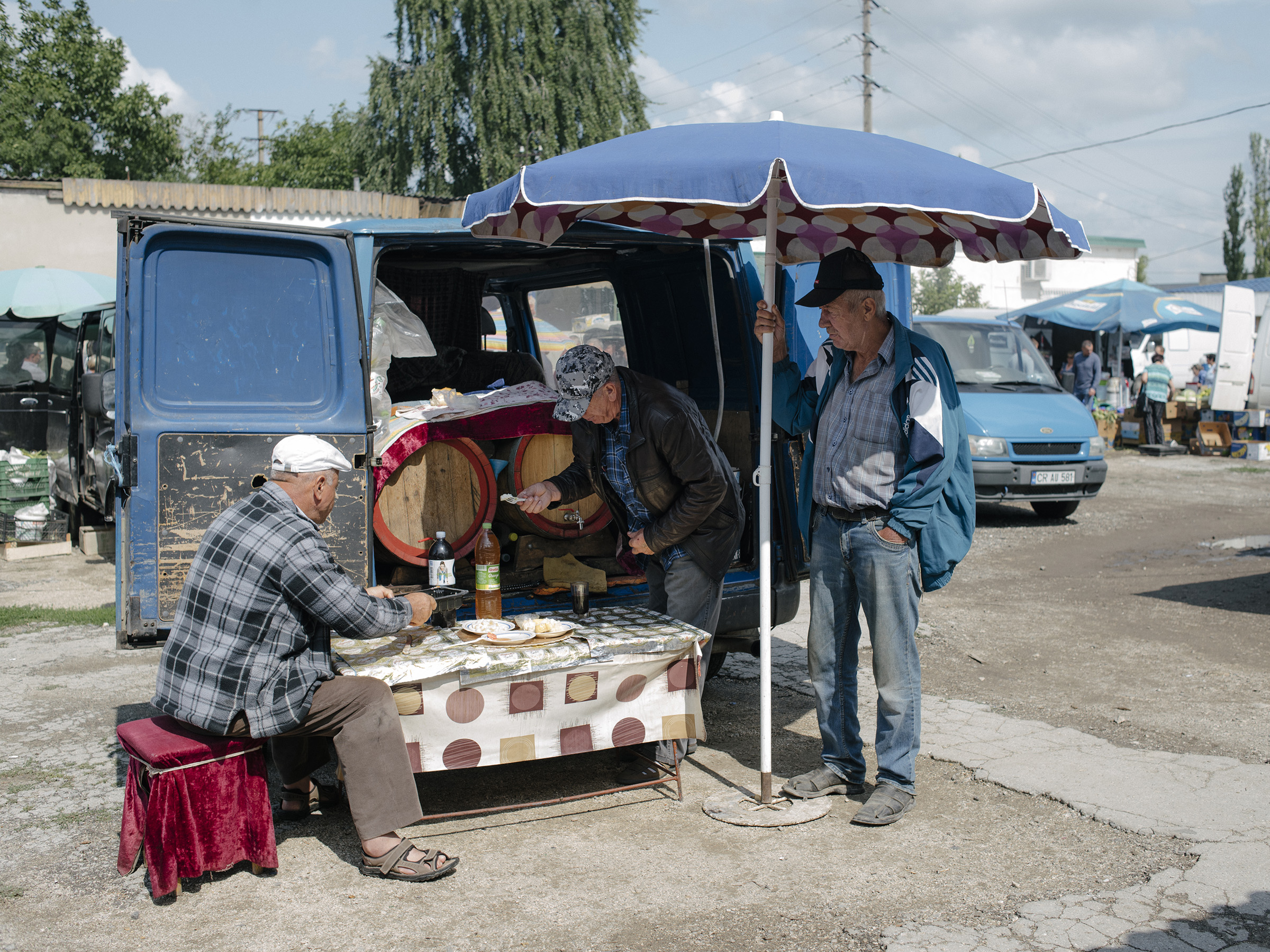
“There’s a lot of hopelessness here,” says Lungu. “There’s nothing for young people to do. You can’t start a business, it’s too risky unless you can afford to pay bribes.” He struggled with alcoholism for over a decade. “Drinking gave me relief, short-term relief. It made me indifferent,” he says.
But the country’s problem with drinking has only made conditions worse for Moldovans still here. Domestic violence, crime, child neglect, inability to work and drink-driving are just some of the major problems associated with alcohol abuse. A 2015 study found a partner’s drinking problem to be the strongest factor associated with spousal violence in Moldova and several other East European countries. A 2018 study of children living on Moldova’s streets by Terre De Hommes, an NGO supporting vulnerable children, found that a parent’s alcohol abuse is commonly linked to violence at home, child abuse and neglect. “These are the main reasons children leave their homes,” the report writes.
Tatiana Goncear, Director of Chisinau’s branch of the international charity Mission Without Borders (MWB) works to support more than 500 vulnerable families, many of whom have been affected by alcoholism. Volunteers visit families at least twice a month and provide food packages. “Sometimes parents exchange the packages for drink instead of feeding their children.” That’s partly why the charity has also set up aid centers, where children can have a meal. “It might be the only one they get that day,” she says.
Moldova is not indifferent to the endemic alcohol abuse within its borders. In 2012, its Ministry of Health adopted an eight-year national plan to tackle the issue, the first of its kind in the country. The program banned certain advertisements, raised taxes on hard liquor, restricted sales hours and raised the legal drinking age from 16 to 18.
But the restrictions have had limited success. Most alcohol consumed in Moldova is home-brewed, yet there are no laws targeting home production. While taxes on liquor were raised, beer and wine are still cheaply available. In pubs and bars, it is not a legal requirement to ask for ID. Beer, meanwhile, can still be sold anywhere, without need for a license or an age limit. Vasiliev says he’s treated many alcoholics who became addicted to beer without considering or realizing it contained alcohol.
What regulations exist are not effectively enforced, says Vasiliev. “The reality is, there is no single body for ensuring the program is followed, which creates a lot of confusion about who’s responsible for what.” A bar owner in Chisinau says that most bars and supermarkets, don’t care about the time restrictions, nor the age limits, especially in the villages. “They know nothing will happen if they break these rules,” he says.
“If the government really wants to confront the drinking problem, it has to make it more expensive, less accessible,” says Vasiliev. In the markets, one liter of home-brewed wine goes for 9 lei ($0.50) while a liter of milk costs 12 lei ($0.44) on average. Daytime TV ads for alcohol have disappeared, but promotions can still be seen outside shops.
Moldova has been more successful at cracking down on driving under the influence. The government reduced the legal blood alcohol content, made penalties more severe and increased breath testing. A drunk driver can be put in prison for 3 to 5 years or fined up to 25,000 lei ($1,383). Serghei Diaconu, former Chief of the Road Police and Adviser to the Prime Minister, tells TIME that the roads are a lot safer than they were ten years ago. In 2012, he introduced a “White Nights” campaign in which road police carry out random breath tests. 129 drunk drivers were caught in one night on one street in central Chisinau. “We caught a prosecutor and some police officers. It was really unexpected and just goes to show how people didn’t take it seriously enough,” says Diaconu. In 2008, 10% of drivers the police stopped were under the influence, but now it’s down to less than 1%, adds Diaconu.
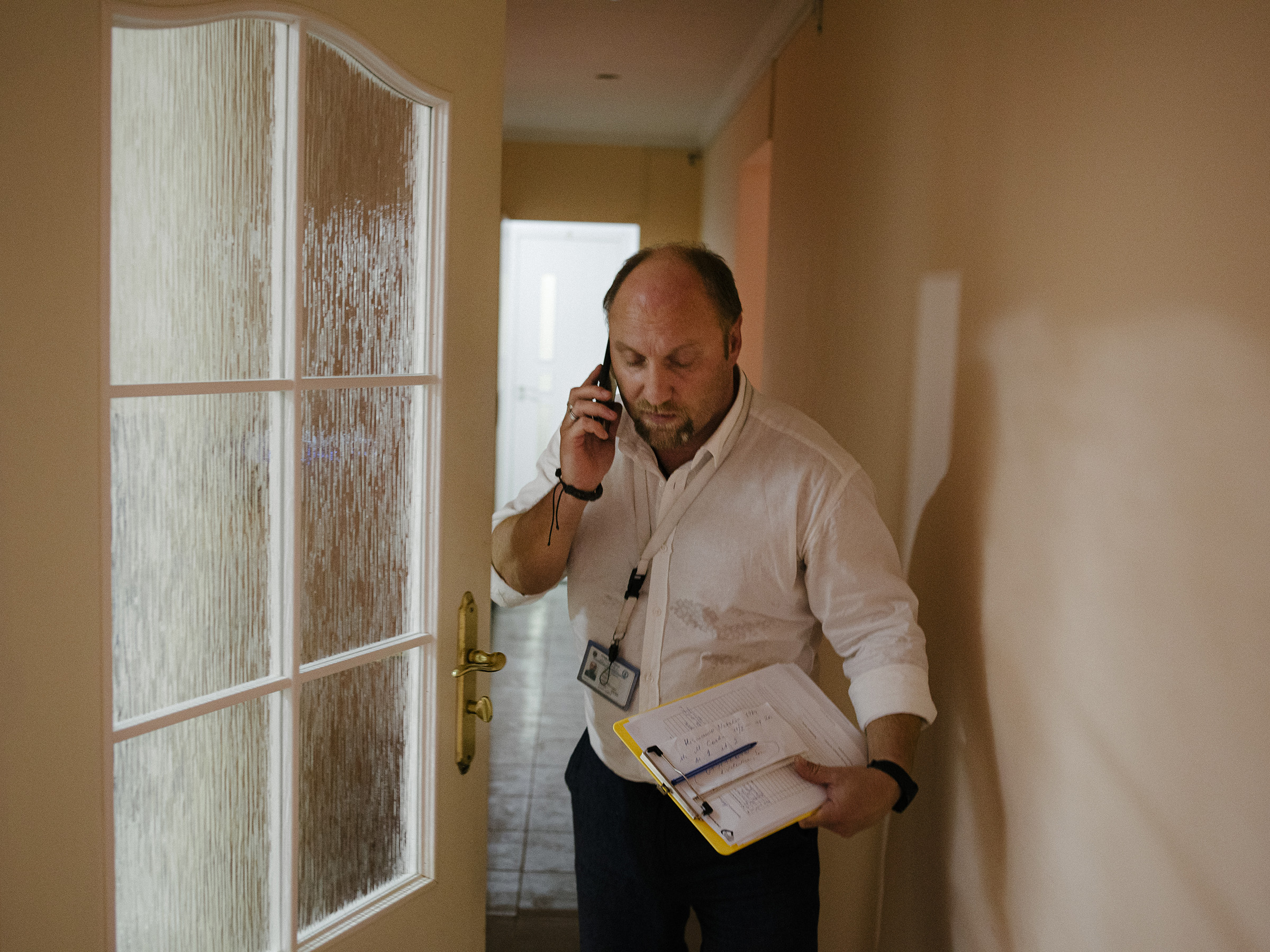
While Moldova has attempted to tackle problem drinking, it’s still very hard for alcoholics here to get help. A Soviet legacy hangs over addiction treatments throughout the former U.S.S.R.,where alcoholics are seen as a burden on society and morally depraved, say Arcadie Astrahan, a doctor and the director of several rehab centers in Chisinau. In the Soviet era, any doctor diagnosing alcohol or drug addiction was obliged to put the person on a national registry, which was routinely shared with enforcement agencies. Once on a registry, a person lost their driving license and couldn’t get certain jobs.
Treatments for all forms of addiction had a heavily medicalized approach and sometimes punitive focus. People who refused treatment or continued to abuse illicit drugs or alcohol risked being committed to special work camps for drug users and alcoholics for six months to two years, where they were subjected to “reeducation through labor.” More than two million people, the vast majority of them alcoholics, went through these camps in the 1970s and 1980s. “Medical treatment only targeted the consequences of alcohol abuse, when someone was already sick, without looking at why someone drinks. A person is bound to relapse. It’s the same today,” Astrahan says.
The Moldovan government is willing to pay for alcoholics to undergo a detox, which can mean up to two weeks in a narcological dispensary, a Russian branch of psychiatry that targets addiction. For access to comprehensive treatment, including psychological and social rehabilitation that are more widely funded by other European governments, people must pay out of their own pockets. The Soviet-era registry is still in place. “It’s a major concern because it stops people finding official help,” Astrahan says. Some family doctors tell employers if their patients have a drinking problem, says Maria Ivanova, a 38 year-old recovering alcoholic. “This is not unusual, especially in villages where everyone knows each other.”
Even if you can fund your own treatment, finding it is another matter. Astrahan’s center, ‘Recovery,’ is the only one of its kind in Moldova, providing medical, psychological and social support. The center is on the outskirts of Chisinau, down a narrow residential road. It seems more like a traveler’s hostel with its shared dormitories and common room, where residents chat and laugh. Astrahan says that when the center was first established the neighbours complained multiple times to the council. “They didn’t want a load of ‘drunks’ hanging around. But when they saw we didn’t cause trouble, they stopped,” he says. Around 20 people stay for a 28-day rehabilitation period. But at a cost of 650 euros ($728), it’s not accessible to many Moldovans.
Astrahan introduces me to some kitchen staff who also went through the program. “If people want to come back and work for us, we try hard to find them something. It helps to stop them going back to their old life of drinking” he says. At a daily 11 a.m. meeting around 15 residents gather on couches and a psychologist asks each of them how they’re feeling. “This time a couple of weeks ago I’d be asleep from last night’s bender, or walking to the shops for booze. So, I’m very good,” says one young resident wearing a tracksuit.
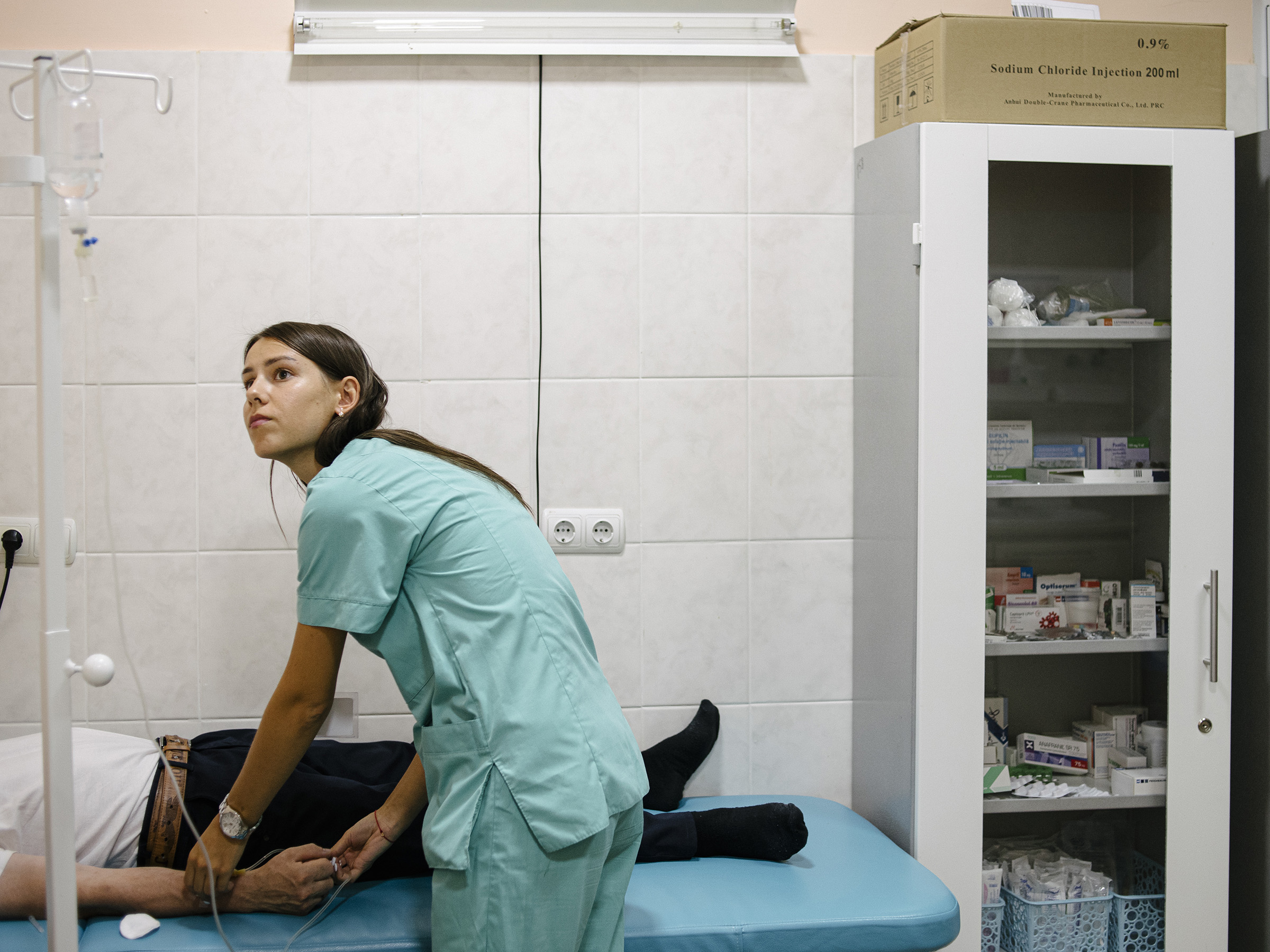
Where the government has failed to step in, some communities are trying to help their own. Alcoholics Anonymous (AA), the international fellowship which helps its members to stay sober through a 12-step program, is present in Moldova, as it is in over 175 countries. On Tuesday night, May 14, 47 people packed into the small room in the basement of a residential building in the outskirts of Chisinau. Some are mothers with their daughters, and fathers with their sons. Most are from Chisinau but a few travelled from villages. They sit tightly in rows that line the walls, and lean in from the doorway when there’s no space left inside. AA posters surround them. “We admitted we were powerless over alcohol – that our lives had become quite unmanageable,” one poster outlines Step One.
Bonya, a 47-year-old from Chisinau gives the familiar introduction. “Hi, my name is Bonya and I’m an alcoholic. Sober for 7 years.” Each person introduces themselves this way and receives applause. Anywhere from 2 weeks to 28 years is how long members say they’ve been sober. Like many in the former Soviet Union, Bonya says drinking alcohol was linked to masculinity for him. “I thought drinking more than any of the boys meant I was the strongest.”
“This is the biggest group we’ve seen so far,” whispers Debbie, an American AA representative sitting next to me in the meeting. She’s one of four members who traveled from California to Moldova to spread awareness about AA. (TIME agreed to only use her first name to respect her wish for anonymity). The four have been members for more than 30 years and paid for the trip themselves. “We want to share our own experiences and knowledge in other places because alcoholism is everywhere,” says Debbie, who has been communicating with Moldovans thanks to the help of some of the group’s bilingual members.
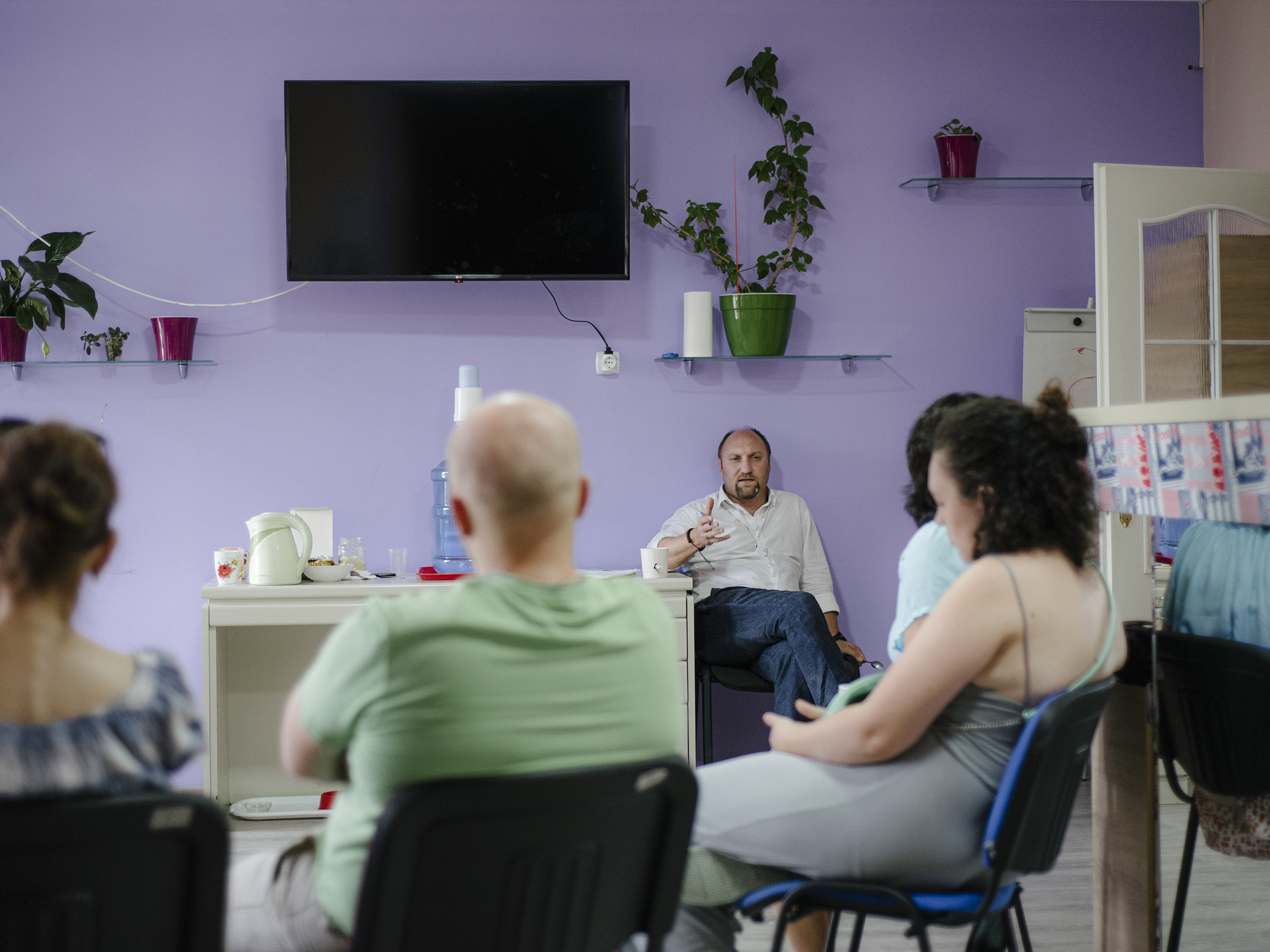
Some of Moldova’s AA members are in Astrahan’s 28-day rehab program. “They see a sober person who has what they want – an ordinary person, not a doctor, and it makes the goal seem attainable,” says Astrahan. A 26 year-old at Tuesday’s AA meeting says she doesn’t know English well, but wants to say a few words to the Californian representatives. “I drank because I felt bad. I don’t even know why,” her voice cracks. “But to know other people care about me means so much,” she says. Debbie gets up and hugs the young woman. Everyone applauds.
The anonymity that is key to AA is especially important in Moldova, where stigma around alcoholism is strong. “I would lose my job if my boss knew,” says one young woman. The level of prejudice around women drinking is higher. Even though public health expert Penina says men and women drink equally, women are significantly outnumbered by men in rehab and AA groups. “It’s okay for men to go out drinking on their own, but you never see a woman do that. It’s not acceptable,” says Ivanova, who started going to meetings two years ago after struggling privately with alcoholism for 13 years. “My friends and parents didn’t know. I was ashamed.”
AA appears to have been positively received by its Moldovan members but the program’s abstinence-based approach, followed by 2 million people worldwide, has faced criticism. With only three AA groups and a total of 100 active members across Moldova, the group’s reach is still small. Access to information about AA is needed to expand the group’s membership as well as reach younger people, the members say, many of whom found out about the network by word of mouth. “The biggest problem is that people only realize they’re alcoholics and find help very late. By then a lot of damage has been done to their health, relationships and jobs,” Ivanova adds.
But in Moldova few know about AA. Ivanova, who runs the AA Moldova’s website and works on its 24-hour hotline, says that people are suspicious about the group. “They don’t believe in free services and are trying to find out what the catch is. Sometimes people think we’re a sect.” When she contacts newspapers, TV and radio stations asking them to advertize AA “no one responds,” she says.
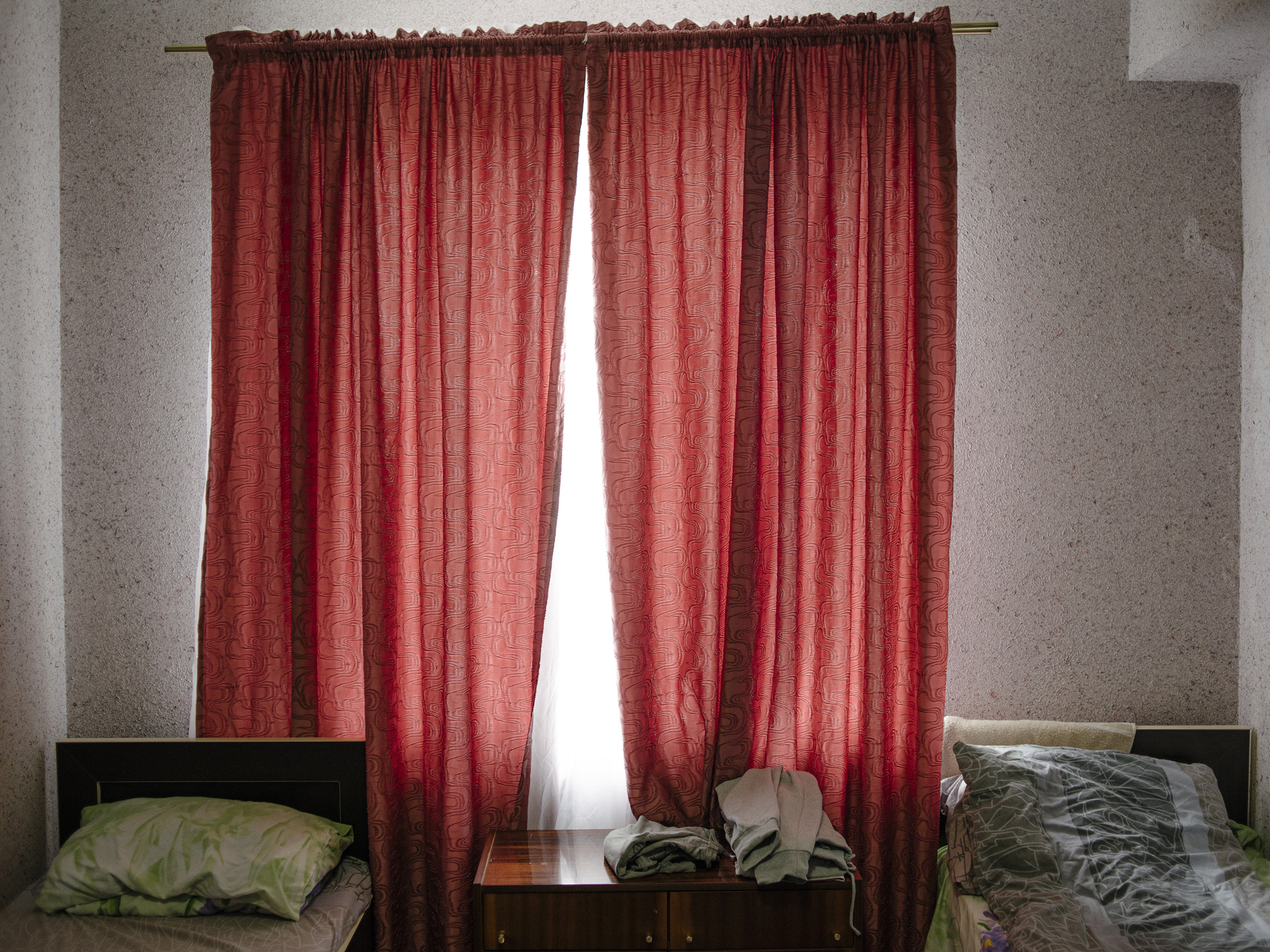
Moldovans are reluctant to engage in collective action and social solidarity is low, according to the Bertelsmann Stiftung’s Transformation Index (BTI), a research center that monitors political developments around the world. The level of trust toward key democratic institutions in 2016 was one of the lowest in Moldovan history, with just 6% of the population declaring substantial or modest trust in parliament. “Everyone for themselves – that’s the mentality here,” says Lungu.
But for those who have found the courage to reach out, the rewards can be great. “If you told me ten years ago, ‘Bonya, you’re going to quit drinking’, I would never have believed you. Now look!” Bonya says with a laugh, as he smacks the table, shaking our tea cups. Next weekend, he’s driving to Belarus to voluntarily speak at an AA forum about his recovery. He’s already shared his story in Ukraine, Poland and Russia, where he also collects AA literature for the groups in Moldova. “It helps me to keep going,” he says, looking down as he fiddles with a cigarette lighter. Bonya has made friends with recovering alcoholics from all over the world and he shows me his two Scottish friends on Facebook.
He can’t speak English but his 19 year-old bilingual daughter, who comes to the forums with him, helps with translation. There’s going to be an AA forum in Moldova at the end of August and international members are invited, he says. “I’m not sure how many people will come.”
Correction, Sept. 4
The original version of this story misstated the value of 1,000 lei in U.S. dollars. 1,000 lei is worth about $56 as of this update, not $240.
More Must-Reads From TIME
- The 100 Most Influential People of 2024
- Coco Gauff Is Playing for Herself Now
- Scenes From Pro-Palestinian Encampments Across U.S. Universities
- 6 Compliments That Land Every Time
- If You're Dating Right Now , You're Brave: Column
- The AI That Could Heal a Divided Internet
- Fallout Is a Brilliant Model for the Future of Video Game Adaptations
- Want Weekly Recs on What to Watch, Read, and More? Sign Up for Worth Your Time
Contact us at letters@time.com